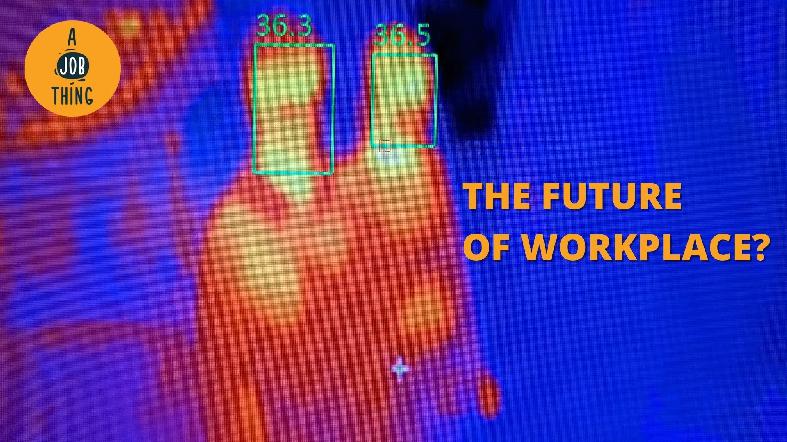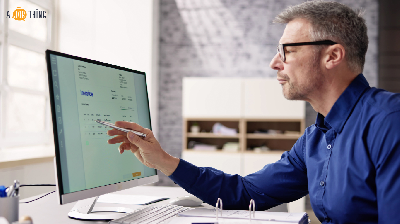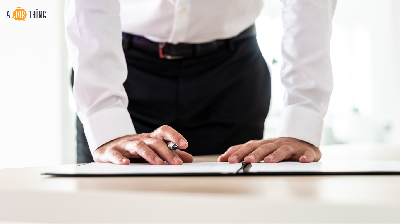
Privacy vs Safety: How COVID-19 Affects the Future of Workplace
Create Job Description Using AI
Write appealing job descriptions for any job opening to attract the most qualifield and suitable candidates. FOR FREE.
try now
Those who are returning to work after the pandemic will find various gadgets used to improve workplace safety. However, some people think it will affect personal and medical privacy.
Some of these gadgets include temperature checks, digital "passports" wellness surveys, robotic cleaning, and disinfection systems used in many workplaces that are reopening. Tech companies and startups offer solutions that include gadgets such as wearables that can detect the symptoms of COVID-19.
How big companies cope with COVID-19:
-
IBM and Salesforce partnered on a "digital health pass" that lets people share their vaccination and health status on their phone.
-
Fitbit has its own "Ready for Work" program that includes daily check-ins using device data.
-
Microsoft and United HealthCare are using the ProtectWell app that has a daily symptom screener.
-
Amazon is using a "distance assistant" in its warehouses to keep employees practice safe distances.
-
Many tech firms and health organisations are working on a digital vaccination certificate for smartphones to show evidence of immunisation for COVID-19.
The problem
These new technologies may require employees to undergo screenings as they enter the building lobby, hallways and workplace.
According to Darrell West, the vice-president of Brookings Institution, the monitoring "blurs the line between people's workplace and personal lives". He added that it erodes medical privacy protections for employees.
Based on a report in 2020 by the consumer activist group Public Citizen, they identified at least 50 apps and technologies released during the pandemic "marketed as workplace surveillance tools to combat Covid-19".
.jpg)
Some employees might worry about their medical privacy being risked.
The report said some systems could even identify people who may not spend enough time in front of a sink to note inadequate hand-washing.
It also said that such an invasion of privacy on employees is alarming, especially considering that these technologies' effectiveness in curbing the spread of COVID-19 has not yet been established.
Public Citizen said there should be clear rules on collecting and storing data, with better disclosure to employees.
The balance between workplace safety and employees' privacy
According to Forrest Briscoe, a professor at Penn State University, employers face a delicate balance as they try to ensure workplace safety without intruding on their employees' privacy.
He said there are valid reasons for requiring vaccination proof, but these sometimes conflict with medical privacy laws, limiting an employer's access to employee health information.
"You don't want the employer accessing that information for work-related decisions," he said.
Briscoe said many employers rely on third-party tech vendors to manage the monitoring, but that has its risks too. He said that using third-party vendors will keep the data separate. Still, for some companies, their business model includes gathering and using data for a monetisable purpose which poses a risk to privacy.
The pandemic has inspired startups worldwide to find innovative ways to curb virus transmission. For instance:
-
The Taiwan-based company, FaceHeart, demonstrated software that can be installed in cameras for contactless measurement of vital signs to screen for COVID-19 symptoms.
-
Drone maker, Draganfly, has a camera technology that can offer alerts on social distancing and detect changes in people's vital signs.
-
Misty Robotics has a programmable robot that can be adopted as a health check monitor and can be designed to disinfect frequently-used surfaces such as door handles.
According to a researcher, Jay Stanley, there are risks in relying too much on technologies that may be unproven or inaccurate, such as trying to detect fevers with thermal cameras among moving people.
"Employers have a legitimate interest in safeguarding workplaces and keeping employees healthy in the context of the pandemic," he said.
"But what I would worry about is employers using the pandemic to pluck and store information in a systematic way beyond what is necessary to protect health."
Source: AFP via FMT
Articles that might interest you
Income Tax E-Filing for 2020 Begins on March 1
Access Unlimited & Free Online Training Courses at e-LATiH
Six Tough Things a Manager Must Always Remember





